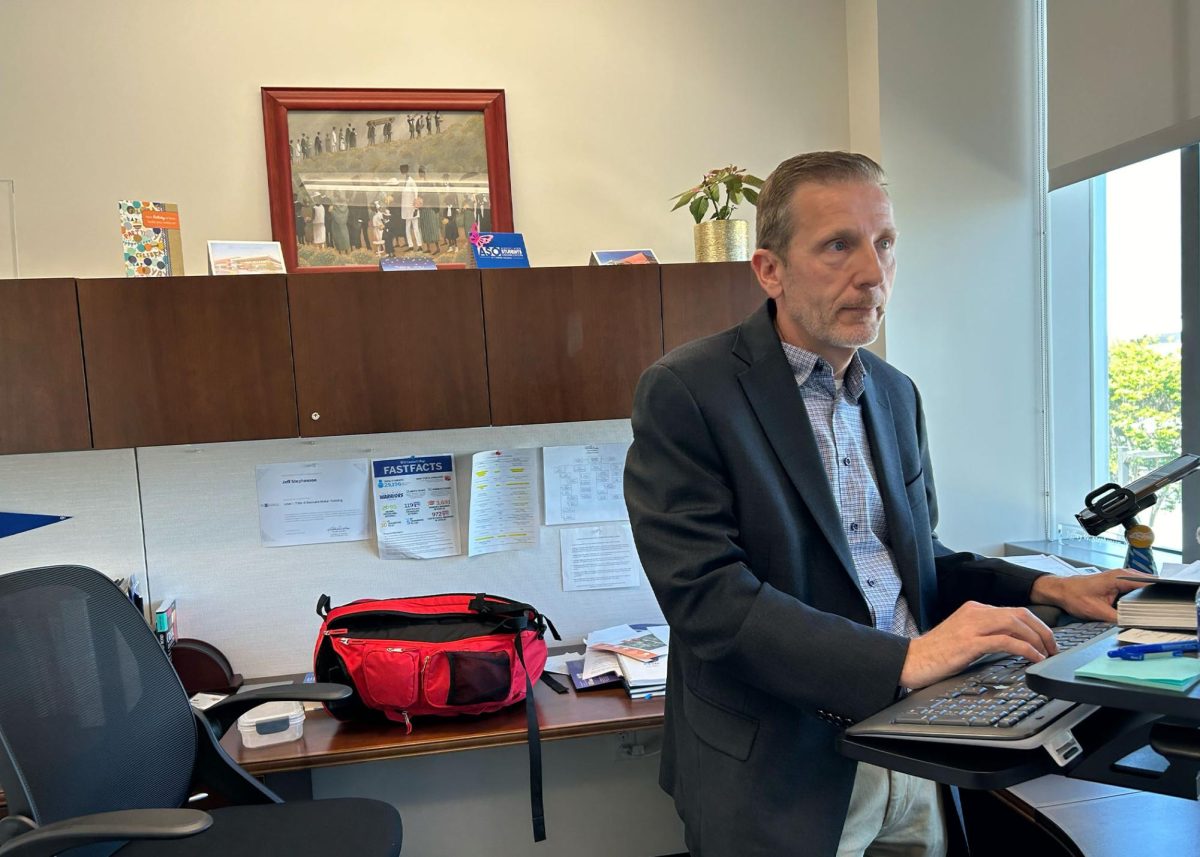In 2023, the Torrance Green Room, a marijuana dispensary, opened right across the street from the El Camino College Police Department, itself located within the college campus.
The only problem– no cannabis operations at all are allowed within Torrance city limits.
The Green Room was an unlicensed shop.
El Camino and Compton College student Luis Tellez said he visited the shop a few times before it was ultimately shut down in late 2023 as part of Torrance’s official no-cannabis business policy.
When asked why he would risk visiting an unlicensed “illegal” shop when licensed shops existed in other areas, Tellez scoffed.
“Straight up, that s–t is too expensive, I don’t know who those legal shops are for but they’re not for us,” he said. “Everyone I know gets their stuff from the small [unlicensed] shop or just plugs.”
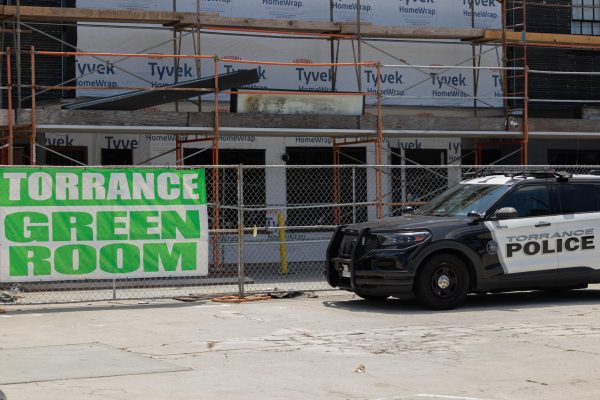
In 2016, the passing of Proposition 64 effectively made personal marijuana use for adults 21 years or older legal while also giving California the power to issue business licenses with hopes of turning the underground cannabis business into a safe and tax-producing industry.
However, individual counties and cities have the ultimate say in deciding whether to allow all, some or no cannabis businesses.
While cities like Los Angeles and Long Beach have embraced the change, the South Bay has been more resistant to the budding green industry with the majority of South Bay cities flat-out banning marijuana businesses.
This year, the Biden administration revealed plans to reschedule marijuana from a Schedule 1 drug to a Schedule 3. On Thursday, May 16 Attorney General Merrick Garland made the formal proposal for the change, marking one of the biggest federal marijuana policy shifts in decades.
Locally, the South Bay city of Hawthorne, located near Torrance, has shifted from previous policy and in 2022 approved and began issuing licenses for the first legal marijuana businesses to be allowed in the city which will likely open by the end of this year.
Despite these developments, some industry insiders remain skeptical about the cloudy future of the marijuana economy in the South Bay.
Torrance city officials confirmed that besides delivery all cannabis businesses within Torrance are illegal. The city employs a Cannabis Task Force that deals with discovered and reported unlicensed shops.
Officials confirmed that the city is currently aware of two unlicensed shops operating in the city that it is investigating.
Nevertheless, after The Green Room was shut down, Tellez found another favorite shop also close to the El Camino campus in the South Bay.
Like many unlicensed locations the shop discretely advertises itself with a green cross which was the original symbol for medical marijuana.
Princess is a budtender who works at this dispensary. She agreed to speak to The Union on condition that she and the unlicensed shop remain unnamed.

Princess, 23, grew up in South Central and has been in the unlicensed shop industry for 7 years. She got her job at 16 with a fake ID.
She said when it comes to getting jobs in what she calls “trap shops” it normally takes two things – you have to be a girl and you have to “be pretty.”
Princess said on average the shop she works for, which offers unregulated and untaxed marijuana, edibles, vapes and other paraphernalia at reduced prices, makes about five to eight thousand a day in cash sales.
Overhead is minimal.
“These places make so much money that when they get raided, they’re able to just open back up,” Princess said. “They can take that loss.”
Princess has been involved in four raids, arrested during two and been kicked in the face once by a police officer.
She said budtenders make a guaranteed minimum of $200 a day before tips which are usually generous.
In response to whether recent federal and local changes might affect the success of these unlicensed shops, Princess thinks the underground economy will be fine.
“These changes, I feel like they are trying to make it harder for us trap shops but the thing about people, we are always gonna find a way,” she said.
With Hawthorne allowing licensed businesses, the unlicensed shop where Princess works, already near El Camino, will have a new licensed neighbor by the end of the year.
Elliot Lewis is the CEO of Catalyst, a licensed marijuana company with 27 active dispensaries throughout the state. Lewis said if the next couple of years “are decent” he is looking at 35 active shops.
One of those new shops will be Catalyst in Hawthorne. With the property already in construction and with both a retail and distributor license approved by the city of Hawthorne, Lewis is looking to be operational by the end of the year.
It will be the first licensed shop in Hawthorne which is surrounded by cities that ban the practice, a factor Lewis is counting on to claim a strategic customer foothold in the area.
The new location will also allow consumption on-site for events meaning it will be legal and allowed to smoke on the premises. Lewis said the consumption option was strategically placed in the South Bay, between his LA and Long Beach markets.
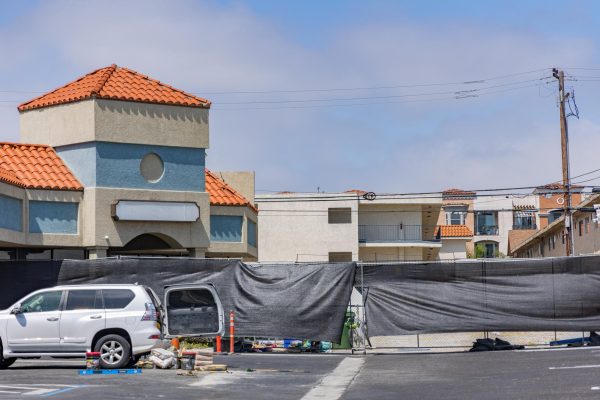
Lewis previously attempted to enter the licensed business game in the South Bay by leading an ultimately unsuccessful initiative to change local legislation and allow cannabis shops in El Segundo, Manhattan Beach, Hermosa Beach and Redondo Beach.
“Hawthorne went out and passed their own initiative and when they opened up the process we jumped and applied, which was different from the other four cities where we tried to push the issue,” Lewis said.
Ultimately, he describes the failed pushes as expensive mistakes. Lewis said he learned there is a difference between people abstractly voting yes on marijuana statewide and allowing it in their neighborhoods.
“The juice just isn’t worth squeeze, it’s easier just to sit back, wait until the city passes it,” he said.
On Nov. 11, 2022, the same night the Hawthorne city council unanimously approved the ordinance to allow commercial cannabis businesses, three of the South Bay cities where Lewis and company attempted legalization initiatives (El Segundo, Hermosa Beach and Manhattan Beach) all rejected the same decision.
Lewis says he doesn’t necessarily see the unlicensed shops as his competition, adding he’s looking to build a new customer base, not steal an existing one. He puts more blame on the high taxes and regulations he said curb the legitimate industry.
“The legal market cannabis program in California is by any measures a failure,” Lewis said.
He argues the state should be producing more revenue than the $4-5 billion it does annually and calls the amount meager in comparison to other states.
“I don’t hate on the black market, It’s people trying to make bread, it’s the result of poor policy,” Lewis said.
He did acknowledge the employee safety issues that can arise with unlicensed shops.
“I think we should try to bring more jobs into the legal market where people have basic protections and can build careers,” Lewis said.
Fynnwin Prager is the Director and Associate Professor of Public Administration and Co-Director of the South Bay Economics Institute at CSU Dominguez Hills.
Prager is part of a team that in 2020 received a nearly $2 million grant to study the effects of the cannabis business in the South Bay.
Prager said when legalization first began, the idea to tax and regulate the product was only natural as a way to assuage people’s fear of what was for years labeled an illicit activity.
By leveling those taxes towards the public good one could feasibly convince people who don’t partake in marijuana to support the business for the tax benefits.
“That’s all well and good except the tax rates are probably too high, from an economic standpoint if you levy too much tax on something then you reduce the productivity, reduce innovation and you stymie growth,” Prager said. “What’s particularly risky here is that it increases the incentives for illegal market activity to continue, so that’s been a major concern as the policy has been rolled out.”
As for Lewis not seeing the unlicensed shops as his direct competition, Prager’s research hints at evidence that the CEO is right.
While Prager warns that the research still needs further study, what they have seen is people who have made a conscious choice to be legal dispensary customers have “a less elastic price range” for the product, meaning those consumers will follow the product even if prices increase.
“We don’t know for sure whether there is a clear movement to the illicit market from the licensed market in terms of customers,” he said “My guess is the prices could go up a lot and they would still buy licensed because for them, especially if they’re new customers to that market, they won’t go elsewhere.”
Prager said for the licensed customer base the knowledge of knowing their product is safe and tested is worth the increased price.
Brooke James currently works as a budtender for Jade Room, a legal dispensary technically located in Harbor Gateway, right next to Torrance but it shares the same zip code. As part of the city of LA, Harbor Gateway which is located on the southeast end of the South Bay, allows licensed cannabis businesses.
When James was younger and before state legalization, she grew marijuana and would sell it to the “trap shops” located in Orange County, where she lived.
Similar to Lewis, James is understanding and sympathetic to the conditions unlicensed workers face but she is critical of the lax safety standards she says make the industry look bad and of unscrupulous moneymen and owners who she said are the real culprits.
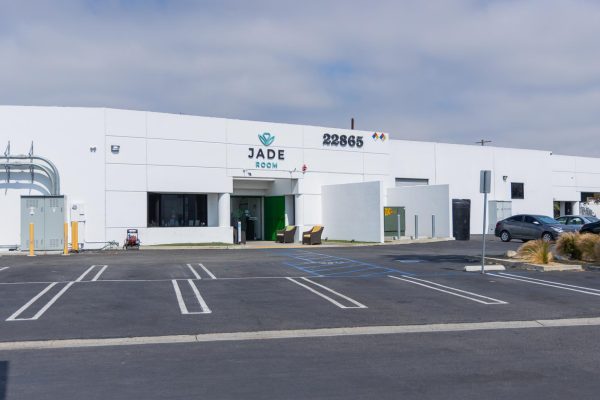
She also understands the high prices are what sends certain customers to the underground market but– echoing Prager– said for her the price is worth the peace of mind. At Jade, taxes are 35%.
“Sometimes the stuff you’re getting from the traps, we don’t know where that flower’s coming from,” James said. “It’s not tested, it can have pesticides, it could have mold.”
Once while buying weed from a trap shop, James said she found bugs in her jar.
Budtender Princess said when managing shops in the past she’s found jars with mold growing that would be thrown out.
Student Tellez said that apart from the odd flower that “felt weak” or a vape or two that was busted, he was satisfied with his unlicensed shop experiences.
A different time James bought what was supposed to be a 100 mg edible from an unlicensed shop to share with friends that was way too strong and one friend was almost taken to the hospital.
“People eat edibles from a trap expecting it to be the same thing and it’s not,” James said. “That’s why people get really f—-d up and that’s what makes us look bad.”
Licensed marijuana shops not only have to pay for their product and the tax, they also pay for product testing.
James explained the reason some trap shops do what they do is because they have trouble getting their licenses and saving capital to do things the right way.
She mentioned Just Quality, a dispensary in the OC that began as unlicensed and ultimately became licensed. Their price increased by 33% due to taxes.
“I think if they brought us down to a lower tax percentage it would make it easier for everybody,” James said. “It would probably eliminate the trap shops because people aren’t paying as high a tax and they’re getting weed that’s tested and safe.”
Princess said she can understand licensed business owners’ frustration with the underground industry.
“They tend to hate the trap shops because they worked really hard, they go through all the steps of being able to do what they do and a lot of times they’re investing a lot of their money or even losing money to do what we do,” she said.
Princess said as long as the local, state and federal governments all try to make excess money off the business some people will go their own way.
She acknowledges the dangers that come with it.
Princess works 12 to 16-hour shifts where she has been threatened, harassed, hit and spit at by violent customers and sometimes coworkers. Some of the shops where she worked were in dangerous areas, leading to taxing by local gangs.
Police raids are a constant thing to look out for.
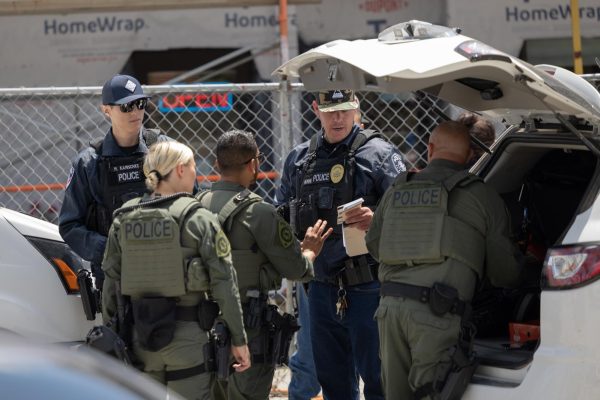
Princess said the company she works for is very organized and owns many shops in different locations.
She describes an organization system that includes workers and security, a location manager and then the regional managers and owners who she says are never seen or spoken to.
They use apps like WhatsApp to communicate.
“So as hard as they make it, these people behind the scenes are really really, really smart and they’re organized,” Princess said. “They have us f—king no brainers out in the field, basically doing the dirty work but the people that are behind it, they know what they’re doing.”
As for why people work in unlicensed shops, Princess said in her case options are limited.
“In my case, I’m a convicted felon and I don’t have a high school diploma so I couldn’t get hired, I can’t even work,” she said. “The things about working at the trap shop is it pays and I don’t have to worry about my character, how I carry myself in the environment.”
Princess has two kids and said she tried working at a fast food restaurant for a while but the pay wasn’t enough. She also admits unashamedly, she prefers the relaxed environment of the trap shops.
Despite the dangers Princess says she can take care of herself but relents she is slowly growing tired of the grind.
She is looking to apply to college soon, referencing wanting more opportunities for her and her growing family. Appropriately enough for the area, she is looking to studying aerospace engineering,
With marijuana rescheduling becoming a reality local taxes and regulations could be reduced which in theory would encourage licensed businesses.
Even with Catalyst set to open in Hawthorne, Princess thinks the unlicensed shop business is safe.
She firmly believes trap shops and licensed shops serve two different markets and jokingly compares them to Trader Joe’s versus Superior Market.
Hawthorne Police Chief Gary Tomatani said ultimately the city has decided to authorize cannabis businesses and that his role is to ensure the safety of those businesses while also balancing the concerns of the community to make sure those legal businesses do not degrade from the city.
Tomatani said Hawthorne has dealt with unlicensed shops in the past and the city has protocols in place to shut them down.
As part of the licensing agreement the new licensed shops will have to agree to certain public safety standards including allowing police access to their video feeds.
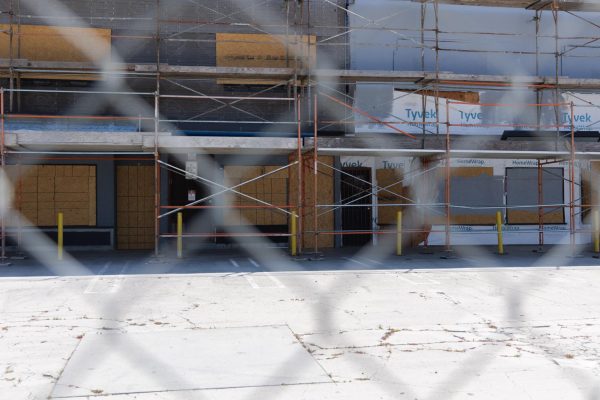
He describes the shift as Hawthorne recognizing where the state already is in terms of the marijuana business. He thinks in the future more people will find the industry uncontroversial.
Tomatani thinks in time the industry could improve the quality of life in the area while emphasizing that the vetting process for the cannabis dispensaries was extensive.
“I think people made an educated decision based on where they’re at when they voted on that issue,” he said. “I think that the city of Hawthorne is doing everything it can to ensure that we emphasize the positives of this opportunity as opposed to the potential negatives.”
Catalyst CEO Lewis is excited for his Hawthorne location but he has grown cynical with the government’s handling of the cannabis industry as a whole.
Lewis is currently suing the California Department of Tax and Fee Administration and the Office of Administrative Law in the OC in regards to what the suit calls excessive and unlawful excise tax.
He said the high taxes and regulations crippled what could have been a legitimate industry and a haven for people without degrees looking to make a living wage.
A black market will always exist with high taxes, Lewis said.
“You can’t do both, you can’t tax the s–t out of it and then claim you ended the war on drugs, you just can’t do both,” he said.



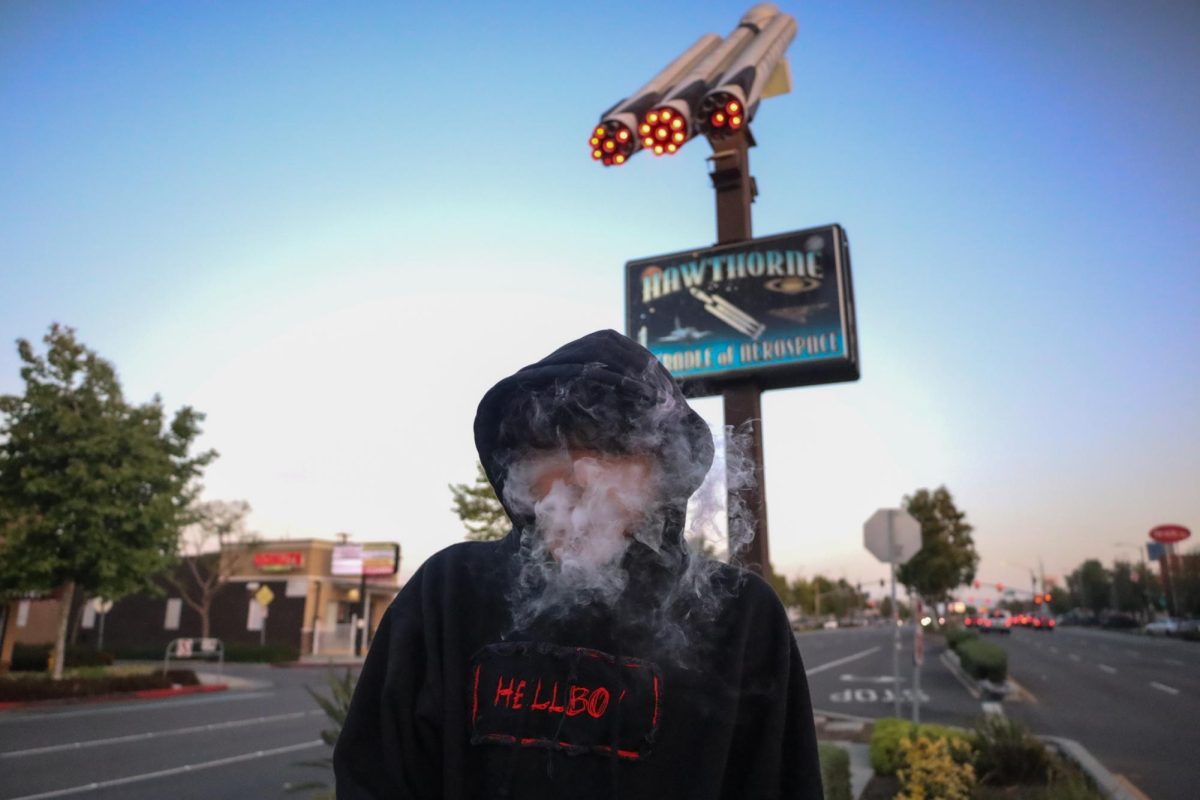

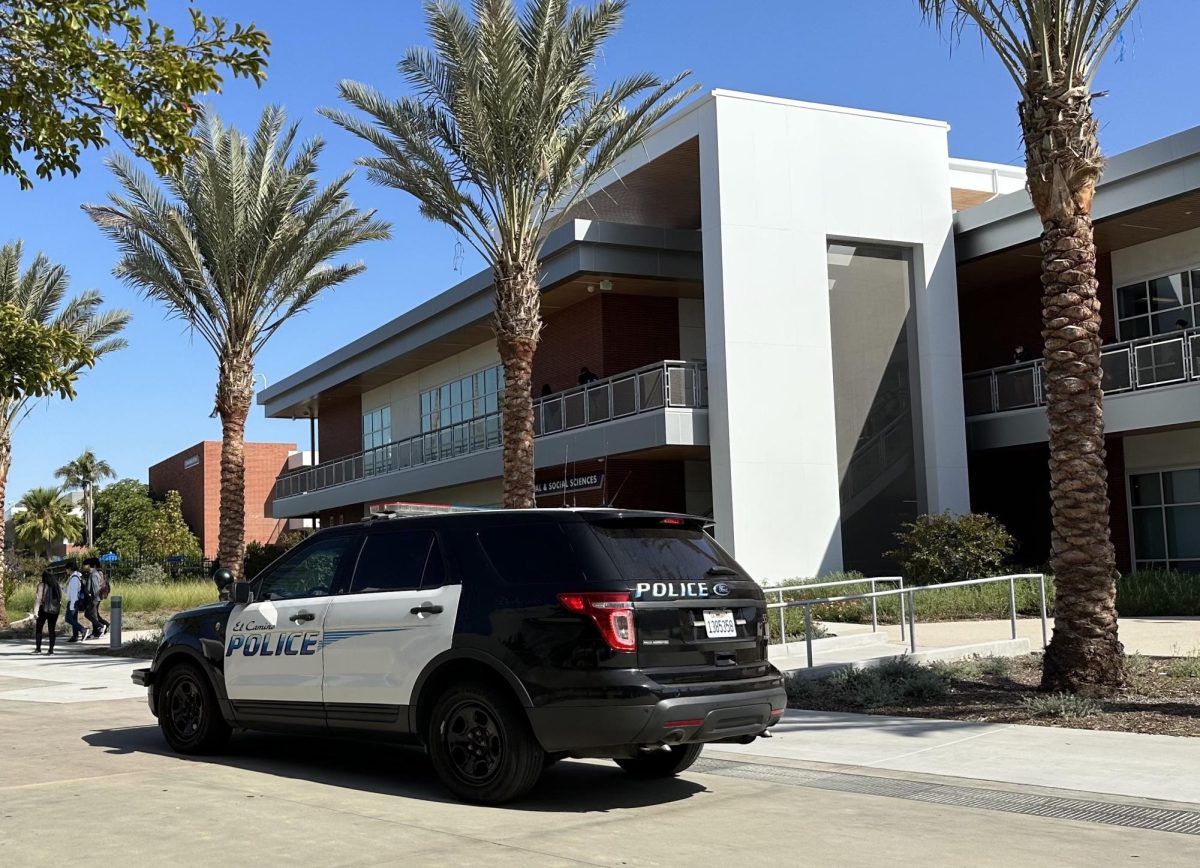
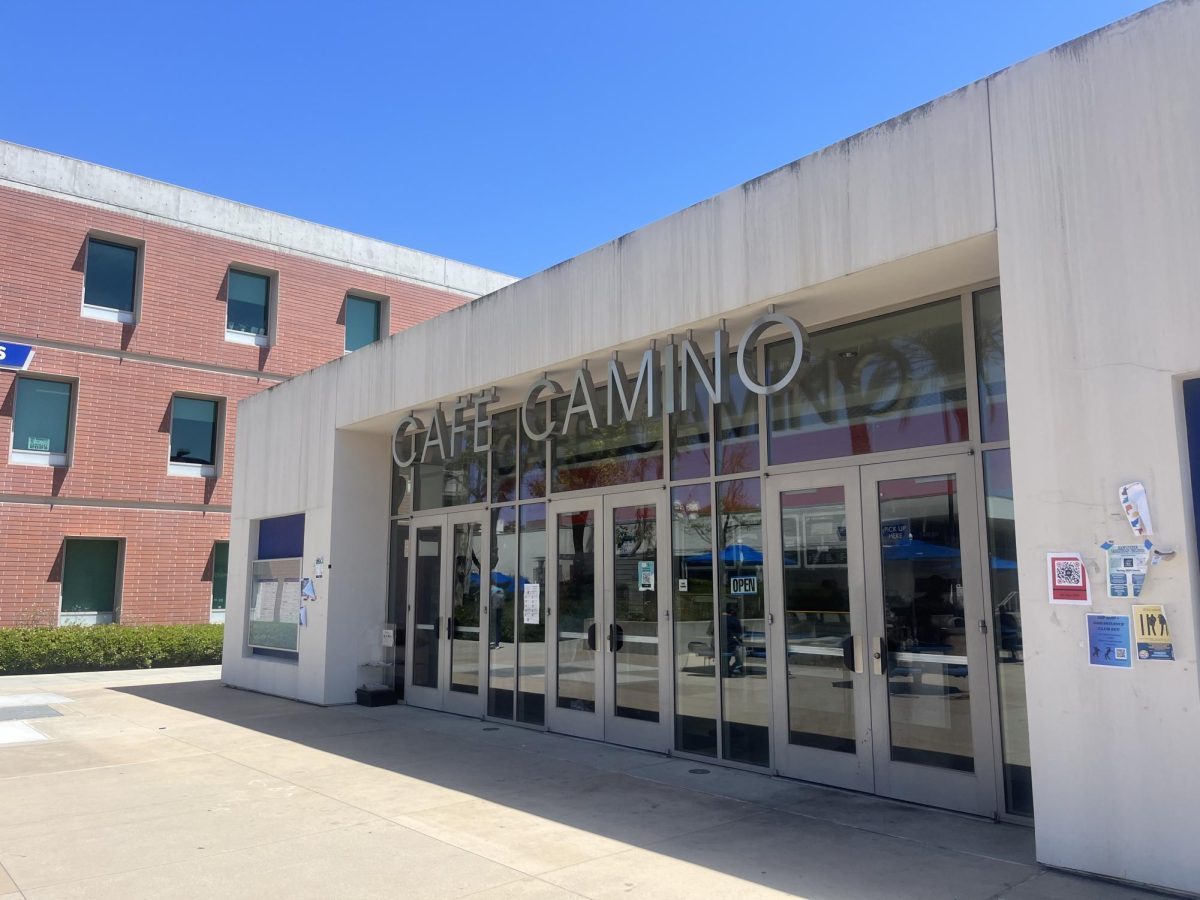
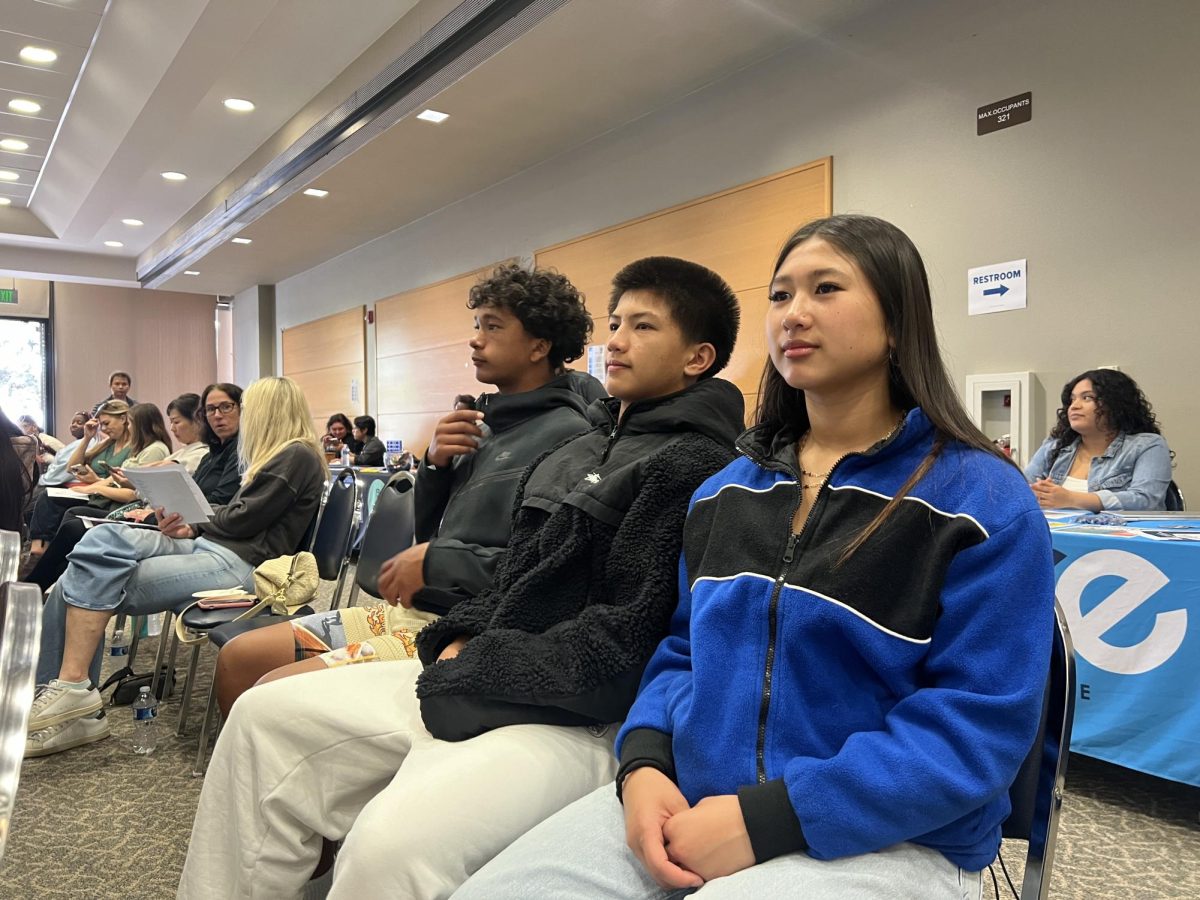
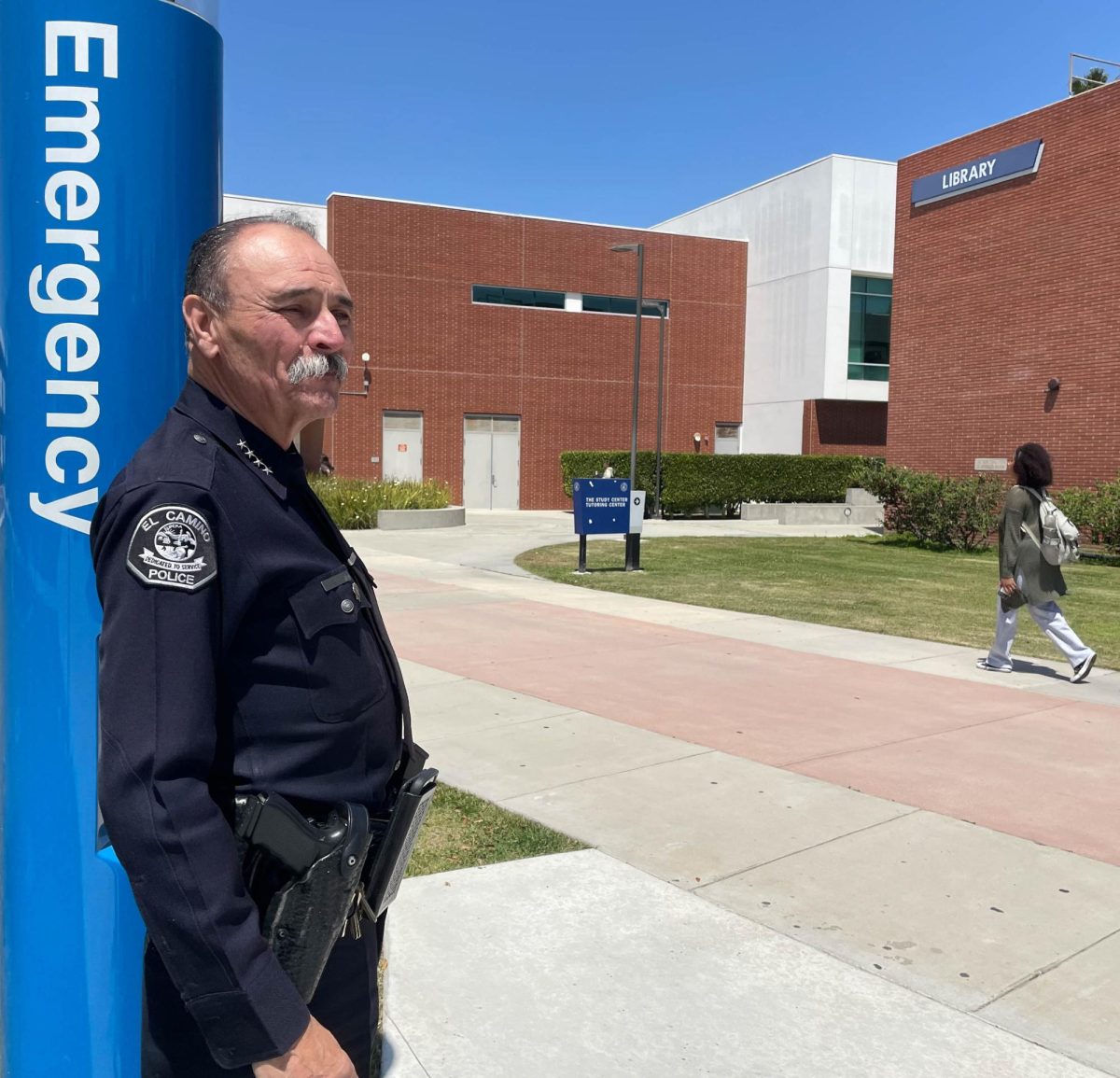
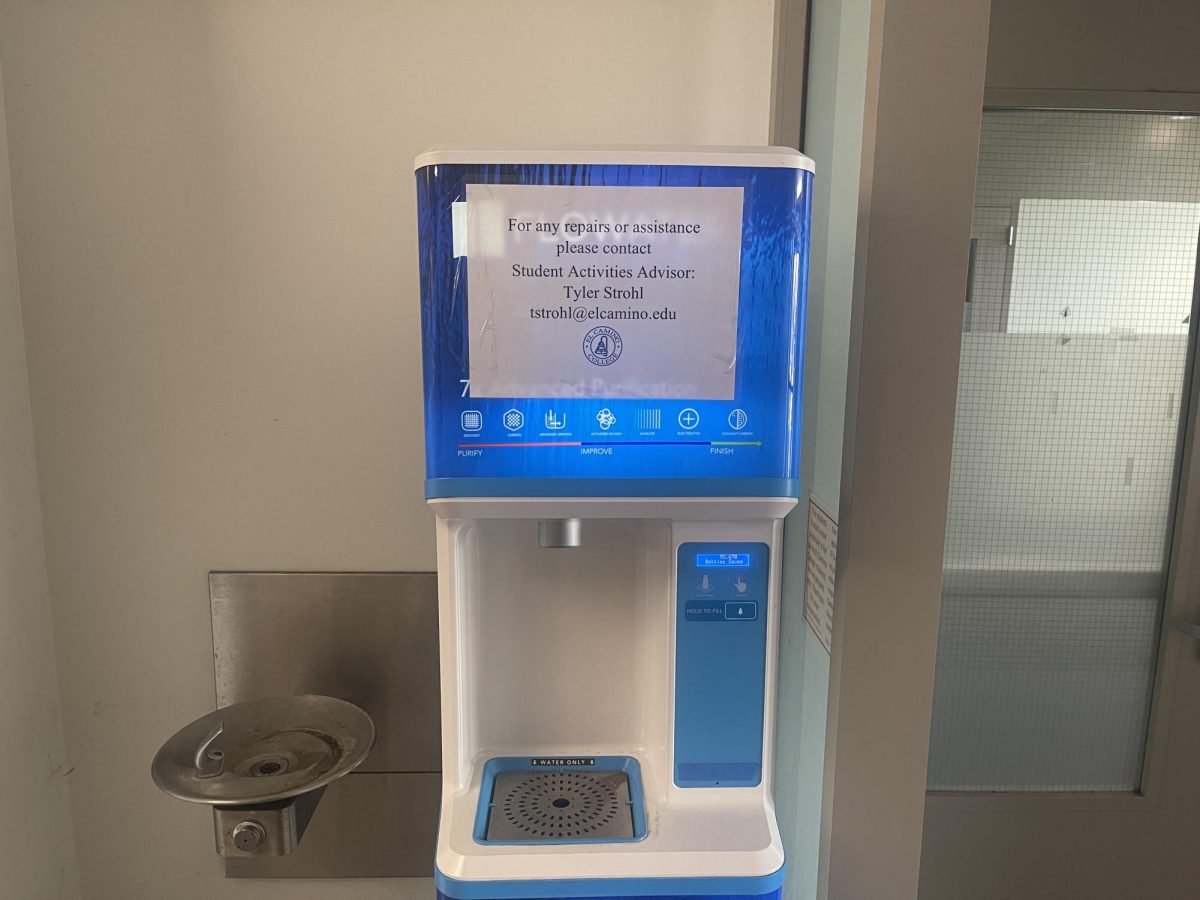
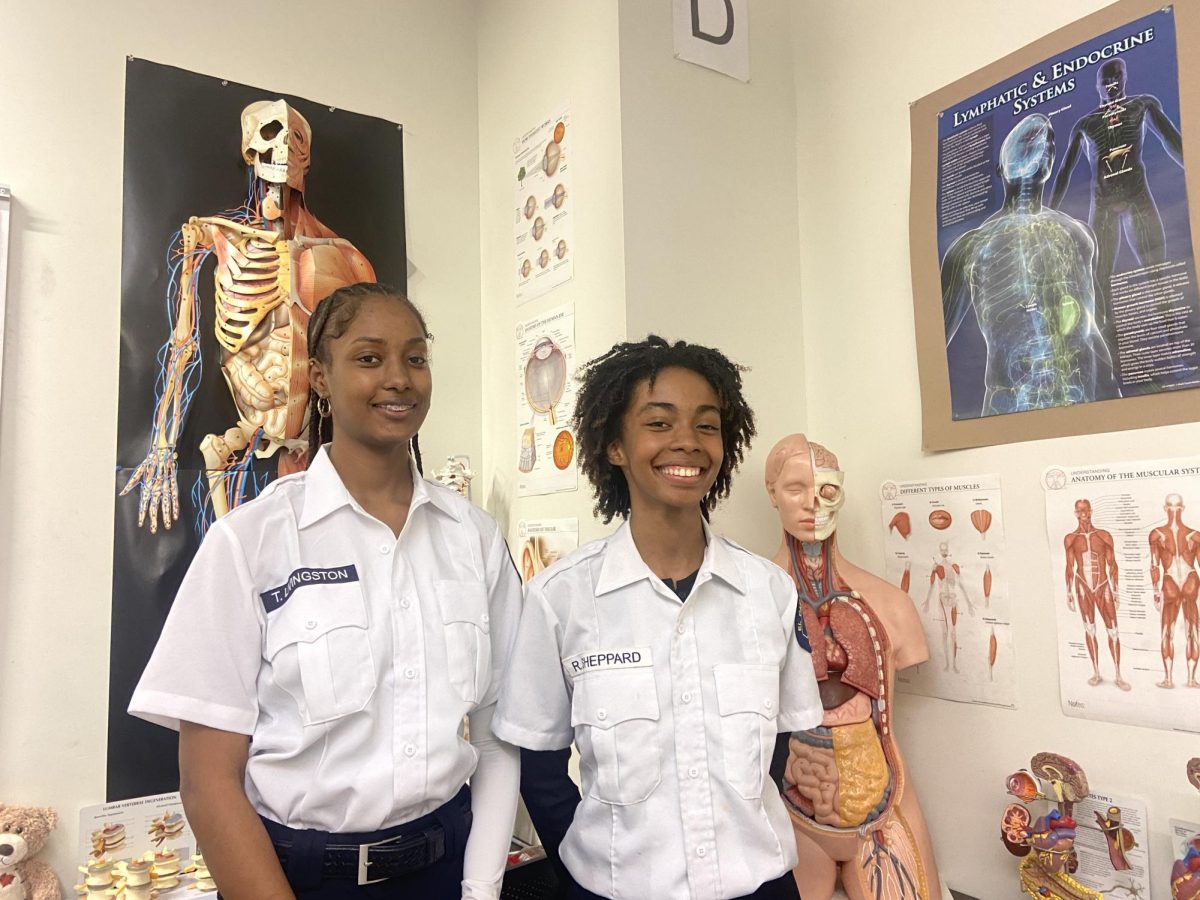
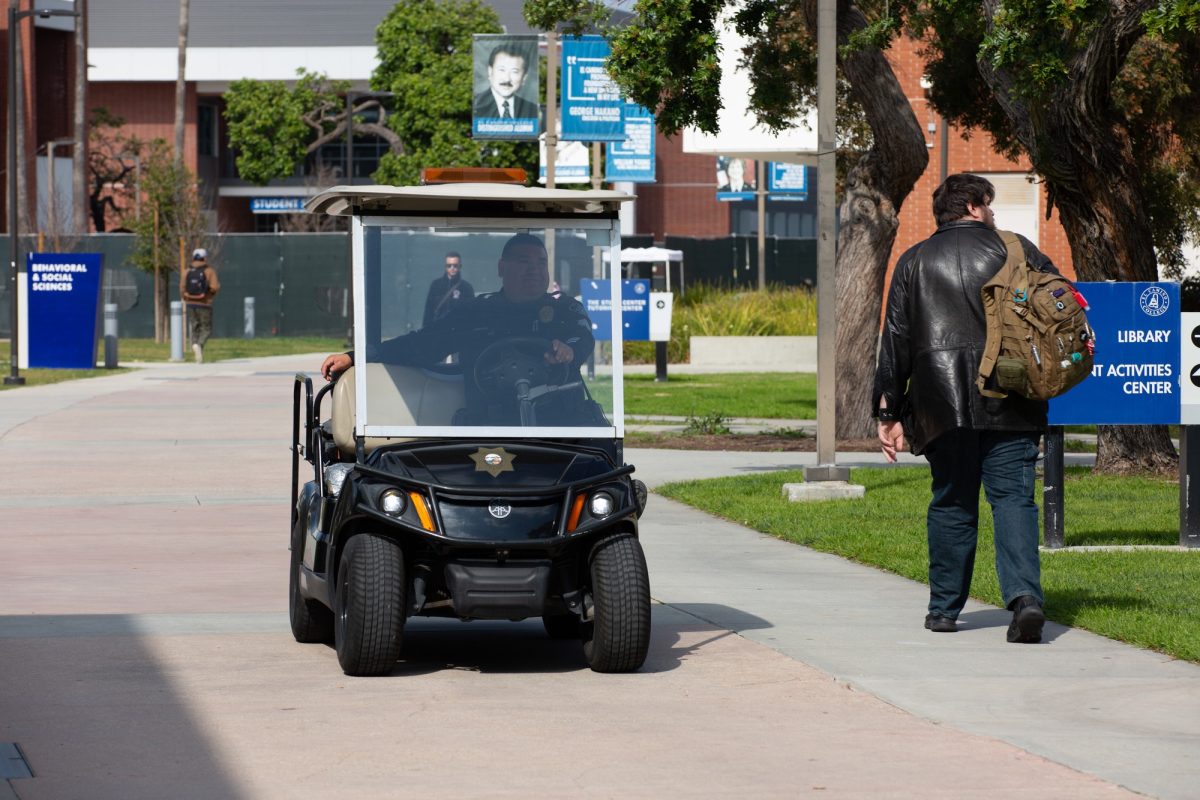
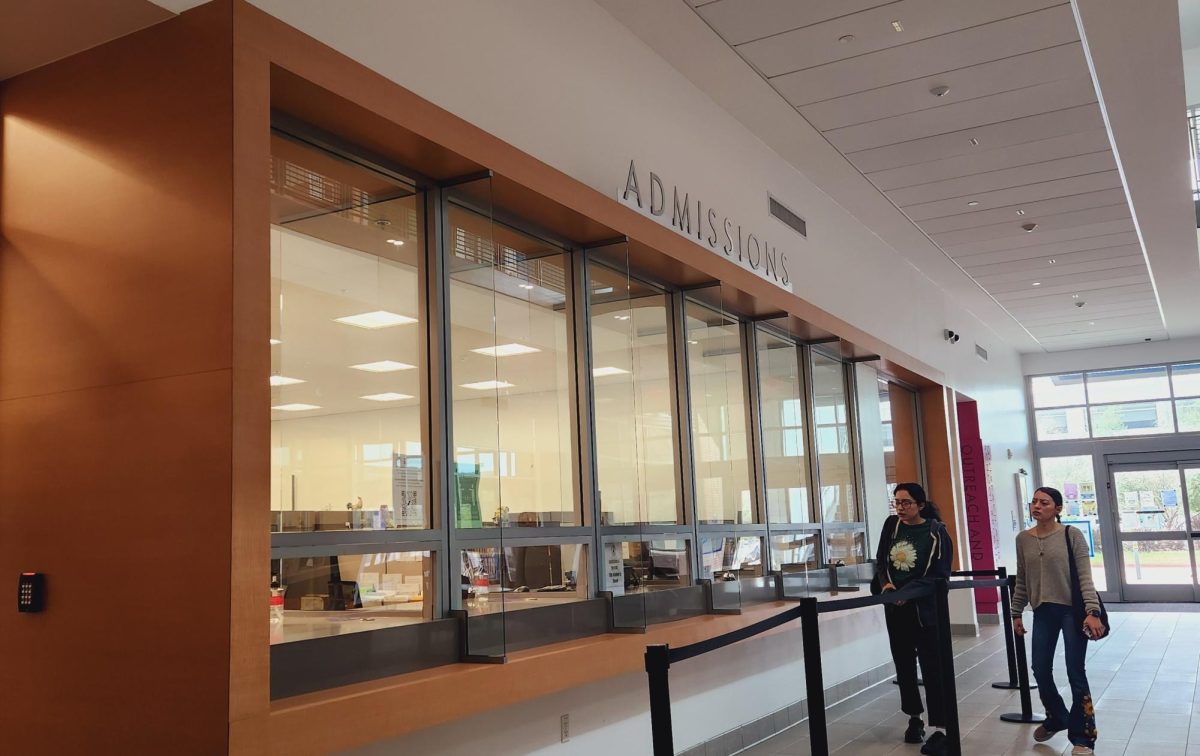
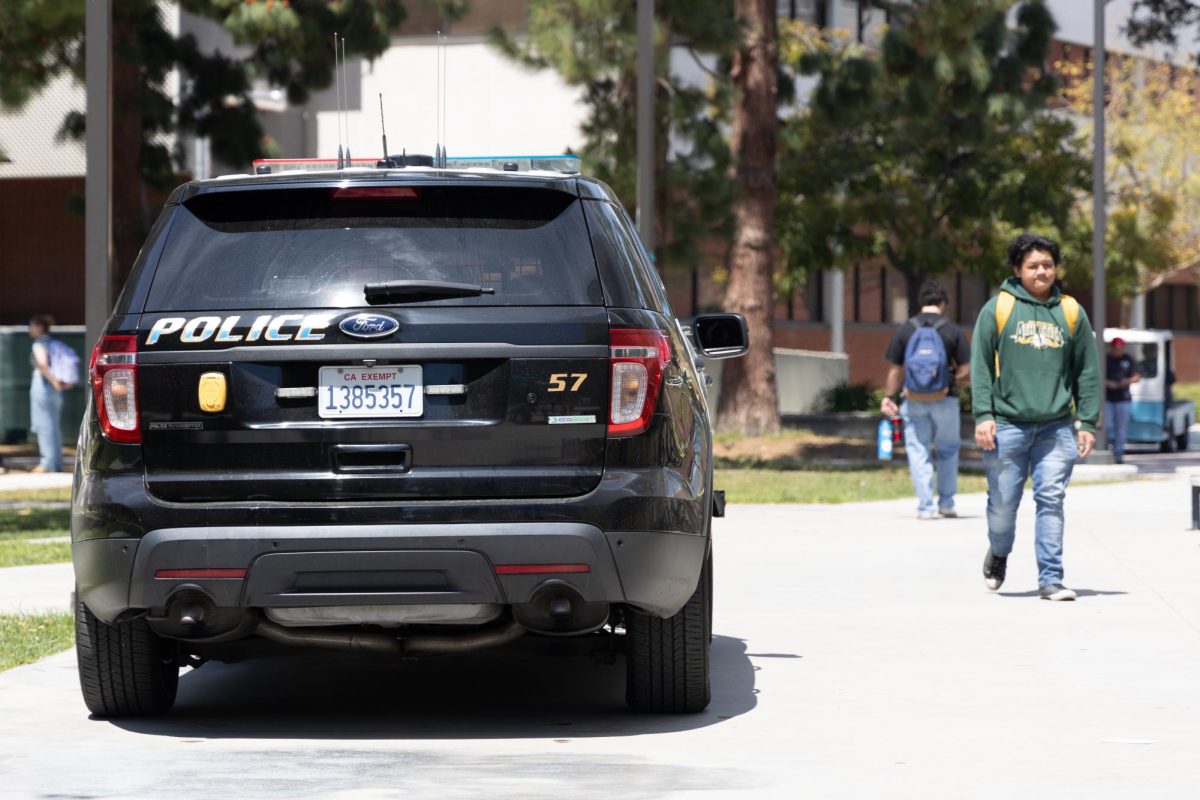
![A United Airlines jet takes off from Los Angeles International Airport on May 15. From Jul. 15 to Aug. 4, El Camino students will study in Madrid, Spain. “Once students understand the little elements [of Spanish culture] that are different, they start to appreciate Spanish culture,” Study Abroad Program Director Xocoyotzin Herrera said about the effects studying abroad has on students. (Raphael Richardson | The Union)](https://eccunion.com/wp-content/uploads/2024/06/J8-KATIE-1-1200x800.png)
